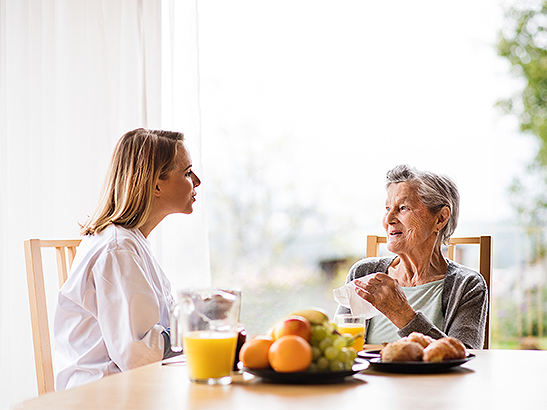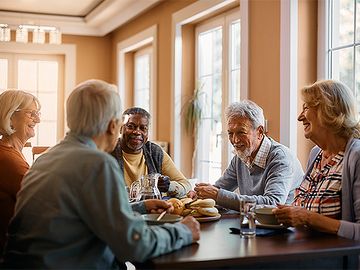When we’re young, we look forward to getting older because we’re eager to have more control over our day — deciding what time to get up, how to spend the day, what to eat, and so on. After gaining that independence in adulthood, many older adults who live in specialized senior care communities may feel that they have lost some control over these simple but important decisions. Person-centered wellness can help address these concerns.
What Does Person-Centered Wellness Entail?
Person-centered wellness ensures that every resident is given a voice and treated with dignity and respect. It involves engaging each resident on an individual level — finding out each person’s problems, motivations, preferences, and more to improve their experiences and their health outcomes. Person-centered wellness is a more holistic approach to caring for residents while preserving their dignity and endowing them with a greater sense of autonomy.
The key to person-centered wellness is personalizing approaches to every aspect of care and service. In independent living communities, older adults decide for themselves what their days will entail, so person-centered wellness is not a significant issue. But as individuals advance through the continuum of care, person-centered wellness has greater significance. When it comes to residents’ nutritional needs and food preferences, registered dietitians can help.
How Person-Centered Wellness Benefits Seniors
Person-centered wellness helps maximize comfort, safety, and health — from helping with everyday tasks to administering medication to crafting meals customized for nutritional needs and respecting individuals’ preferences every step of the way. When I think of person-centered wellness,
says registered dietitian Emily Fear, Sodexo Seniors’ senior area manager, clinical support, it’s about recognizing that in all levels of care, this community is their home. This is where they live, and how can we customize the services they need? … I learn about their interests and just try to meet them where they’re at.
Sodexo’s registered dietitians assess every resident at the skilled nursing stage to determine what chronic conditions they have, whether they have any food allergies or intolerances, what foods they like and dislike, which medications they’re taking (to avoid adverse interactions), and their cultural or religious dietary requirements.
Fear says:
When it comes to long-term care, food might be one of the few things residents still have some autonomy over in their day.
Being able to give them a sense of control and to honor their choices and preferences while supporting them so they can live their best life is paramount and is at the core of person-centered care,
Fear says
Ensuring Residents Are Well
When conducting assessments, dietitians check whether residents are getting the nutrients they need to maintain a healthy weight. “A lot of what we spend time looking at in long-term care is making sure that seniors are maintaining a healthy weight and that they’re eating enough to maintain that weight as unintended weight loss could be a negative sign,” Fear says. Sodexo Seniors’ dietitians are also skilled in designing meal plans and leading educational activities to address other resident conditions such as malnutrition, kidney problems that require dialysis, type 2 diabetes, heart disease, and early signs of dementia.
Meeting the nutritional needs of residents as they advance through the continuum of care can be challenging. It requires respect and thoughtful consideration of each residents’ health, nutrition status, and preferences. But having the right care-team members, including skilled registered dietitians and talented chefs, increases the likelihood of getting person-centered wellness right for each resident.
Ensure that your residents receive the personalized attention they deserve to maximize positive health outcomes while increasing resident satisfaction: Partner with Sodexo Seniors.









